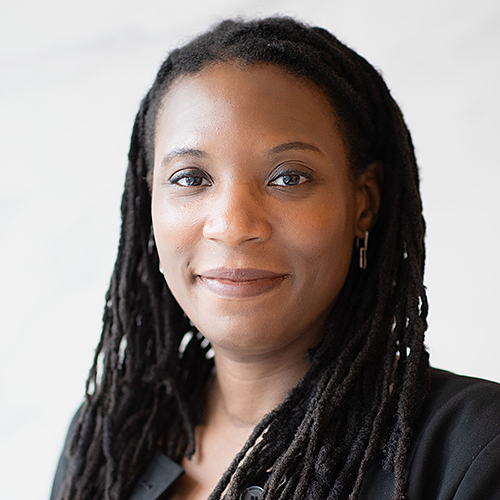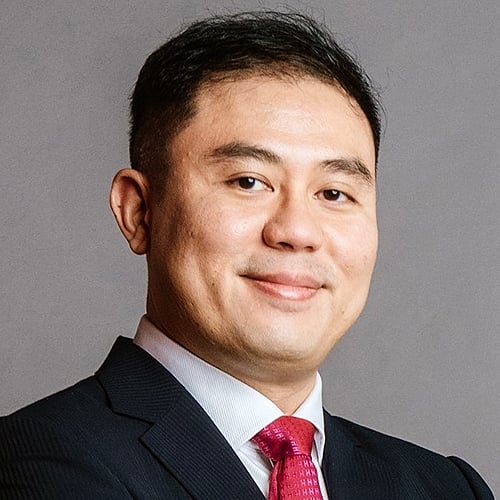 |
|
| Kamso: Beefing up marketing in Europe |
The Islamic asset management sector is attempting to move beyond its traditional markets of Malaysia and the Middle East, where it is already well established, to other countries in Asia, Europe and even Latin America. Although still at a nascent stage, opportunities for cross-border Islamic funds are deemed promising.
AmIslamic Funds Management director of marketing and product development Nancy Chow says the firm’s non-ringgit Islamic mandates have increased substantially in the past few years – highlighting the demand for Islamic funds outside of Malaysia, their domestic market.
“We have institutional clients, presently the bulk of whom are based in Malaysia, who are realizing that returns for Islamic funds could be enhanced by diversifying outside instead of just investing domestically,” she adds.
But despite its bright prospects, the development of cross-border Islamic funds may not be that easy.
At present, Islamic funds are still a niche product, positioned as part of the trend towards socially responsible investing (SRI) – which means building a special portfolio of stocks based on more stringent selection criteria to meet specific objectives.
Because of its nature as niche investments, Islamic asset managers have two options when considering going off-shore: to aim for markets with sizeable Islamic populations such as Indonesia, India and Pakistan; and/or to compete as an SRI product in the more conventional non-Islamic markets like Hong Kong and Singapore.
The first approach can be targeted more towards the retail market segment (although there is also a sizeable institutional market in these countries) since a significant domestic Islamic population can be a strong base for successfully marketing cross-border funds. The second approach can target institutional investors, not necessarily Islamic investors, who may be keen to diversify their portfolios with SRI-related assets.
UCITS features favoured by Asians
In 2010, a major breakthrough for cross-border Islamic funds occurred when asset managers discovered they can use the UCITS (Undertakings for Collective Investment in Transferable Securities.) platform for going cross-border in Asia. Although the UCITS platform was originally intended for cross-border distribution of non-Islamic funds in Europe, this vehicle has been equally successfully used by European fund managers for distributing some of their funds in Asian markets that allow it.
In the past six months, with assistance from European service providers more familiar with the intricacies of UCITS, some Asian fund managers have begun using the platform for distributing their non-Islamic funds across Asia. The same realization has come to Asian Islamic fund managers who see the possibilities of using UCITS for cross-border distribution in the regional and global markets.
One principal reason for this is that UCITS’ regulations and standards have been found by Asia-based investors, asset managers, and regulators to be reasonable in terms of its transparency and investor protection. Because of that, it has become easier to sell UCITS funds or UCITS-compliant funds to other Asian markets – making this platform quite appealing to Islamic fund managers who are eyeing cross-border products.
By using the UCITS vehicle, Islamic asset managers may be able to overcome the key challenges to the development of cross-border funds, namely: lack of track record and absence of a distribution platform.
At least one Islamic asset manager has embarked on a strategy of using the UCITS platform with the aim of initially selling Islamic funds in Asia and Europe.
CIMB-Principal Islamic Asset Management, a joint venture between the Malaysia’s CIMB Group and the New York-listed Principal Financial Group, has applied to regulators in Dublin, Ireland to register three equity funds under the UCITS platform. It has sought the assistance of the Malaysian regulators to facilitate the process.
According to Datuk Noripah Kamso, chief executive of CIMB-Principal Islamic, the firm has identified Dublin as the “shop window” for exhibiting its track record and a “gateway” to Europe for global distribution of its Islamic funds. CIMB-Principal Islamic offers Islamic global capabilities in equities and sukuk for global institutional clients, beginning with those in Asia and the Middle East.
“In the past, we have been focussing on the low hanging fruit in markets like Malaysia, Indonesia, Singapore and Thailand but in 2010, we beefed up our marketing efforts for the UK and Europe,”
Kamso says. “We are also leveraging on our shareholders’ resources for Asia and the Middle East.”
When these products hit the target markets, the CIMB-Principal UCITS Islamic funds will be clear examples of how the UCITS platform can be used effectively for marketing of Islamic cross-border funds both in Europe as well as Asia, providing a model for other asset managers.
In addition to Dublin, Luxembourg – which is a larger market for UCITS products – is even more open to encouraging the development of Islamic funds on its own platform. In May, the Central Bank of Luxembourg hosted the 8th Islamic Financial Services Board Summit 2011, a five-day conference designed to enhance awareness and further development of Islamic investing in the European market and globally.
Challenges of a diverse region
In addition to the key challenges that face cross-border distribution of Islamic funds – the lack of track records of many Islamic funds and the absence of a strong distribution platform and network of most Islamic asset managers – another obstacle is the varied level of acceptance of SRI investing: it is relatively more advanced in some markets than others.
A track record showing historic performance is particularly important for institutional investors such as central banks, pension funds, sovereign wealth funds and endowments that make substantial allocations to Islamic funds. It is thus important for an Islamic asset manager to be able to present a track record of at least two years before a fund can be even considered by institutional investors.
In terms of distribution, the challenge facing Islamic asset managers going cross-border is that the Asia-Pacific region is fragmented with individual markets at different stages of development. Some markets like Hong Kong, Korea, and Singapore are more developed than others like Myanmar, Thailand, and Vietnam. There are differences too in terms of language, culture, and investor preferences especially in the retail market segment.
This means that Islamic products may have to be tailor made for each particular target market and that a one-product-fits all approach is not likely to work.
Another key factor that affects distribution is the lack of uniformity in regulations and standards across the region. Some markets are more restrictive than others and requirements for registration of cross-border funds differ from one jurisdiction to another.
In terms of level of acceptance, SRI funds tend to be accepted more easily in the more advanced markets like Hong Kong and Singapore where ethical and socially responsible investing is more familiar to institutional investors as part of portfolio diversification strategies. In such markets, the investors are generally more focussed on risk management and portfolio diversification versus performance. This means that for cross-border Islamic funds to have a chance of success in a certain market, the concept of ethical and socially responsible investing must already be acceptable in that market.
Unfortunately, in many Asian emerging markets, SRI is still a long way from being a generally accepted component of portfolio management. Although it is beginning to be recognized and appreciated, the barriers to entry for SRI, including Islamic funds, are still quite daunting in many places.









